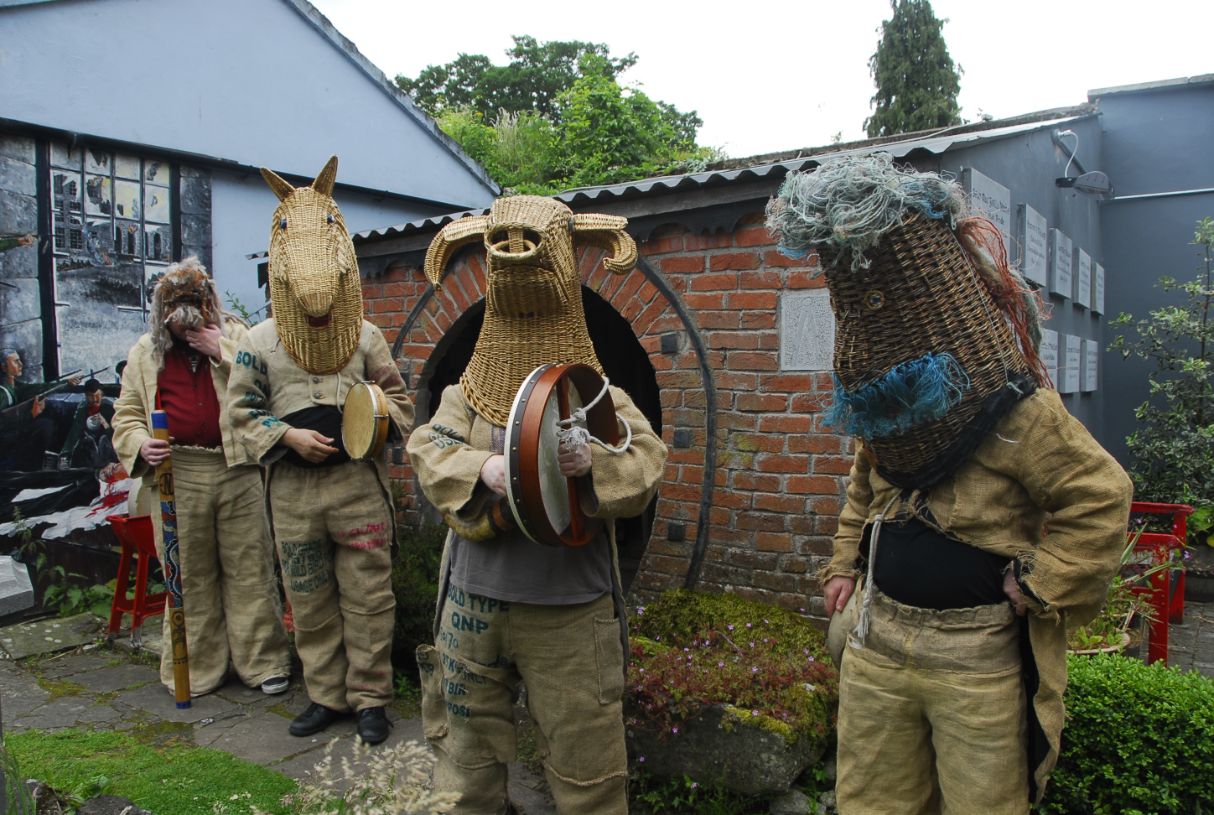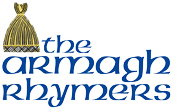Our mask makers are Paul Carville, Derrymacash; Alison Fitzgerald, Ballyhegan; Bob Johnston, Ulster Folk Museum; Randy French, New Orleans and James Mulholland, Aghagallon, North Armagh, who passed away a few years ago.
Over the years we have had various bespoke masks crafted for our work. To date, we have in excess of 30 masks, some of which are no longer in use as they need to be carefully stored as each mask is completely unique.
The concept behind each mask originates from a character in a mummer’s play or performance. Two of our most well-known and loved masks are those of the Bull and Horse. The Bull represents the bull, while the Horse depicts Macha, the horse goddess.
We have masks for both the brown and the white bulls in the Taín as well as three horse skulls representing Macha and her twins. We perform rituals associated with the Taín, Ireland’s national epic. These are usually performed at Emain Mhacha but are available on DVD and social media.

What is rhyming (mumming)?
- The masked tradition of rhyming with its unique blend of music, drama, song and dance dates back over 2,500 years. We incorporate the customs, rituals and local practises into our performances.
- There is a strong tradition of rhyming (ie mumming) throughout Ireland, akin to the strawboys, Wren boys, biddymen and Mayboys, which has continued to the present day with each community having their own individual practices.
- North County Dublin (Fingall), for example, has a long and continuous tradition of Mumming. It is seasonal and traditionally takes place over the Christmas holiday period. Fingal Mumming, represented by Seán MacPhilibín and a group of like-minded friends, differs from Mumming elsewhere in Ireland in that it mixes representative dressing with masking and straw costumes. Furthermore, the main characters in the North Dublin play changed (1950s) to represent Ireland & England.
- The Wexford mummers focus on historical performances. James Parle is involved with this group. In Sligo, Joe McGovern, author of a splendid book on the subject is also active. Fergus O’Flaherty and Aoife Granville maintain a strong Wren Boy tradition in Dingle with the ‘Green and Gold’, County Kerry. Paddy Murray and Jim Ledwith in Fermanagh run the Aughkillynamaud Mummers.
- * In Armagh and Antrim the tradition is called rhyming while elsewhere in Ireland and in England it is known as mumming and is performed by mummers.


